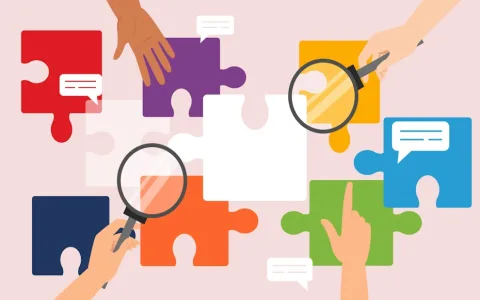How the Whole Mess Started: The Year I Couldn’t Sleep
You wouldn’t believe the weird stuff that gets stuck in your head when you’re going through a massive life upheaval. For me, that upheaval hit three years back when my old man, bless his heart, decided to finally retire and immediately sunk his life savings into some ridiculous, ill-advised crypto scheme that completely cratered. I mean, totally wiped out. He was distraught, paralyzed, couldn’t function. I flew home, thinking I could fix it, but you know how it is—you can’t save someone who doesn’t want to stop drowning.
The whole thing messed me up, big time. I was sleeping maybe four hours a night, waking up sweating, usually right after one of those awful dreams where someone else—never me, always someone I knew—had lost a limb. It wasn’t gory, just profoundly unsettling. A colleague missing a hand. A cousin who’d lost a foot. It kept happening, over and over, hammering me every damn night.
I tried just dismissing it, like “Oh, it’s stress,” but the dreams kept escalating. They weren’t reflecting my dad’s financial collapse directly; they were targeting other people and projecting intense feelings of incapacity onto them. I started feeling like I was going insane. This wasn’t just random brain static; this was a signal, and I had to figure out what the hell it was pointing to.
The Practice: Forcing the Data Out of the Darkness
I realized that if I was going to stop this nightmare loop, I had to treat the dreams like a system error and run diagnostics. This is where the real work started. I wasn’t reading any Jung or Freud garbage. I was running my own practical experiment, pure data collection, crude but effective.
- Step One: Immediate Capture. I started sleeping with a cheap digital recorder next to the bed. The instant I woke up, before I even opened my eyes fully, I mumbled every damn detail I could recall. I forced myself to capture the subject, the lost limb (arm, leg, foot, hand), and my immediate emotional reaction.
- Step Two: Cross-Referencing. This took ages. Every morning, I transcribed the recording and then cross-referenced the dream subject with what was actually happening in their lives. Was the colleague missing a hand struggling with a deadline? Was the cousin missing a foot feeling stuck in their city?
- Step Three: Identifying the Projection. This was the breakthrough moment, the one that validated the whole annoying process. It took about three months of relentless tracking. I was searching for the physical loss (the limb) to correlate with a physical event (the subject losing something). But the correlation wasn’t physical at all.
I noticed that when my colleague lost a hand in the dream, he wasn’t physically injured, but he had just started dating someone I absolutely hated, someone who was actively pulling him away from our shared projects and social circle. When my cousin lost a foot, she had just bought a house in a new state, miles away from everyone she knew, sacrificing her stability for a huge career risk.
The dreams weren’t predicting their physical loss; they were mirroring my subconscious perception of their self-inflicted functional loss—their ability to connect, to move freely, or to execute their primary role—because of choices they were making that I disagreed with or felt abandoned by.
The Real Meaning: It’s Always About Your Boundaries
This is the spiritual meaning, the real meat of the data. It took me six months to hammer this concept home and stop panicking every time I woke up from one of these terrible scenes. When you dream of someone else losing a limb, it almost never has anything to do with them needing physical help. It’s not a prophetic warning.
It is, instead, a brutal commentary on your own feelings of disempowerment and disconnection regarding that person’s current trajectory. The missing limb symbolizes the functionality or the reliance that you placed on them, which is now gone or compromised because of their choices. It’s a profound spiritual projection.
For example, the colleague losing his hand wasn’t about his ability to type; the hand represented his ability to reach out and maintain friendship—a function that my subconscious felt was severed by his new toxic relationship. I was dreaming about my loss of access to him, masked as his physical injury.
The core finding, pulled directly from my dream journals and cross-checked against reality, was this:
The dreams stopped, finally, not when the people in question changed their situations, but when I forced myself to mentally and emotionally accept their self-chosen paths, even if those paths meant they were no longer functioning in the way I relied on them to.
I had to learn to release my attachment to their function. That’s the real trick. When I accepted that my dad’s financial ruin was his choice, and I couldn’t be his crutch forever—when I stopped trying to force him to regain his ‘function’—the urgency of the dreams began to fade. It wasn’t about them getting better; it was about me letting go. It sounds simple, but you gotta live through six months of sleep deprivation and obsessive journaling to actually believe it.
The practice taught me that the spiritual message of someone else losing a limb is really the subconscious screaming: “Hey, you need to detach. Your sense of control over this person’s role in your life is officially severed.” And once I stopped fighting the severance, the dreams quit bothering me.










